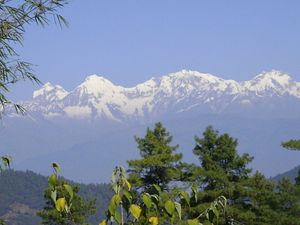On Thursday, China’s People’s Liberation Army confirmed that it would hold its first ever joint exercise with Nepal. Details of the exercise have yet to be finalized, but indications from both Nepal and China suggest that the initial iteration will be modest.
Col. Yang Yujun, a spokesperson for the PLA, said on Thursday that “China and Nepal have conducted initial communication on holding joint training between the two armies and we will publicize relevant information in due time.”
Yang added that “for years, the two militaries of China and Nepal have conducted exchanges and cooperation in various forms on the basis of mutual respect, equality and mutual benefit, which has played a positive role in enhancing each other’s capability of conducting diversified military operations.”
On the Nepali side, the Nepal Army confirmed the scheduled exercise, without offering additional clarification on its scope and location.
“Nepal and China have been exchanging military delegations, visits and courses but such kind of drill is taking place for the first time,” said Brigadier General Tara Bahadur Karki, a spokesperson for the Nepal Army. “We have nothing much to add to the government’s announcement about the proposed exercise.”
The decision has drawn concern from observers in India, who see the development as another sign of rapprochement between China and Nepal. A change in government last year amid a rift in India-Nepal ties stemming from disagreements over the country’s new 2015 constitution prompted Kathmandu to pursue closer ties with China. In particular, under the short-lived term of Nepali Prime Minister K. P. Oli, Nepal pursued an unusually swift overture toward China.
Following Oli’s fall from power this summer after failing to survive a vote of no-confidence, Pushpa Kamal Dahal — also known as “Prachanda” — became the prime minister. Prachanda vowed immediately to balance Kathmandu’s ties between the country’s two giant neighbors, with an acknowledgment of Nepal’s historically close ties with New Delhi. (The two countries have a 1950 Treaty of Friendship and have free movement across their border.)
The Oli-to-Prachanda transition initially left Beijing uneasy about the future of certain agreements that had been concluded during Oli’s enthusiastic outreach to China (including a new railway link between the two countries). Early in the autumn, there were rumors that a planned visit by Chinese President Xi Jinping to the Himalayan country had been canceled amid Chinese dissatisfaction with Prachanda’s handling of matters. (Nepal dismissed reports of the cancellation and China said more information would be released in due course.)
Given this context, the first-ever military exercise between China and Nepal should be seen as part of Prachanda’s broader efforts to balance Kathmandu’s bilateral relationship with Beijing and New Delhi. Given recent outreach and recalibration of the India relationship, Nepal had to continue its outreach to China.
Concerns that one, probably small, military exercise presages a geopolitical realignment across the Himalayas is premature. Owing to both historical factors and the economic realities of reliance on India, Nepal is not quite in a position to fully pivot toward China.

































